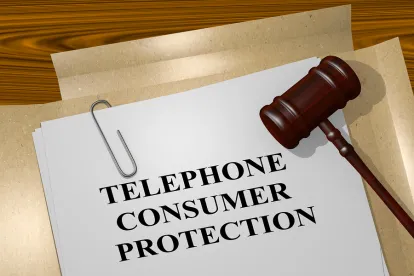TCPA World, another update in our continuing coverage of stays in TCPA (Telephone Consumer Protection Act) cases on primary jurisdiction grounds. As you know, the FCC has sought public comment on the parameters of the ATDS definition in the wake of the D.C. Circuit’s ACA International decision. While we wait to see what they do, defendants across the country have been seeking to stay their cases, sometimes successfully, sometimes not, to see what the FCC says an ATDS is because when they do it might show a defendant didn’t actually violate the TCPA. Seems like a good idea.
Well, if we are reading the tea leaves correctly, mark our words, nothing’s getting stayed in the Ninth Circuit while we all wait for help from the FCC.
The defendant in Izor v. Abacus Data Sys., No. 19-cv-01057-HSG, 2019 U.S. Dist. LEXIS 130865 (N.D. Cal. Aug. 5, 2019) asked to stay the case until “the FCC issues guidance” concerning what constitutes an ATDS. No dice. The district court rejected this plea, reminding the defendant that the Ninth Circuit’s opinion in Marks v. Crunch San Diego, LLC, 904 F.3d 1041, 1052 (9th Cir. 2018) defined an ATDS for that circuit. And, as the Izor court pointed out, “the Ninth Circuit has confirmed that Marks is the law of the Ninth Circuit,” and pointed the defendant to the Ninth Circuit’s recent opinion in Duguid v. Facebook, Inc., 926 F.3d 1146, 1150 (9th Cir. 2019), which held that the Marks “definition governs this appeal.” To the Izor court, there was no uncertainty about what the law was which weighed in favor of a stay – Marks provided all the definition the court needed and the only definition the defendant was going to get before it had to defend the claims against it.
The court rejected the defendant’s request to exercise its inherent authority and stay the case, after considering the Landis factors. While acknowledging that a stay would likely “result in little damage” to the plaintiff, the court was troubled by the potentially indefinite nature of a stay to await FCC guidance. The court concluded that an intervening law change simply did not amount to a “clear case of hardship or inequity” to the defendant. Nor did the court think judicial economy weighed in favor of a stay. Marks was “binding authority” and, as the court opined, “the orderly course of justice dictates adhering to such binding authority” and proceeding with the case.
All in all, this is bad news for defendants in the Ninth Circuit who might settle a case or go to trial only to find out later they didn’t violate the law once the FCC issues its guidance. We’ll keep you updated if any other courts weigh the factors differently than the Izor court. Watch this space.




 />i
/>i

